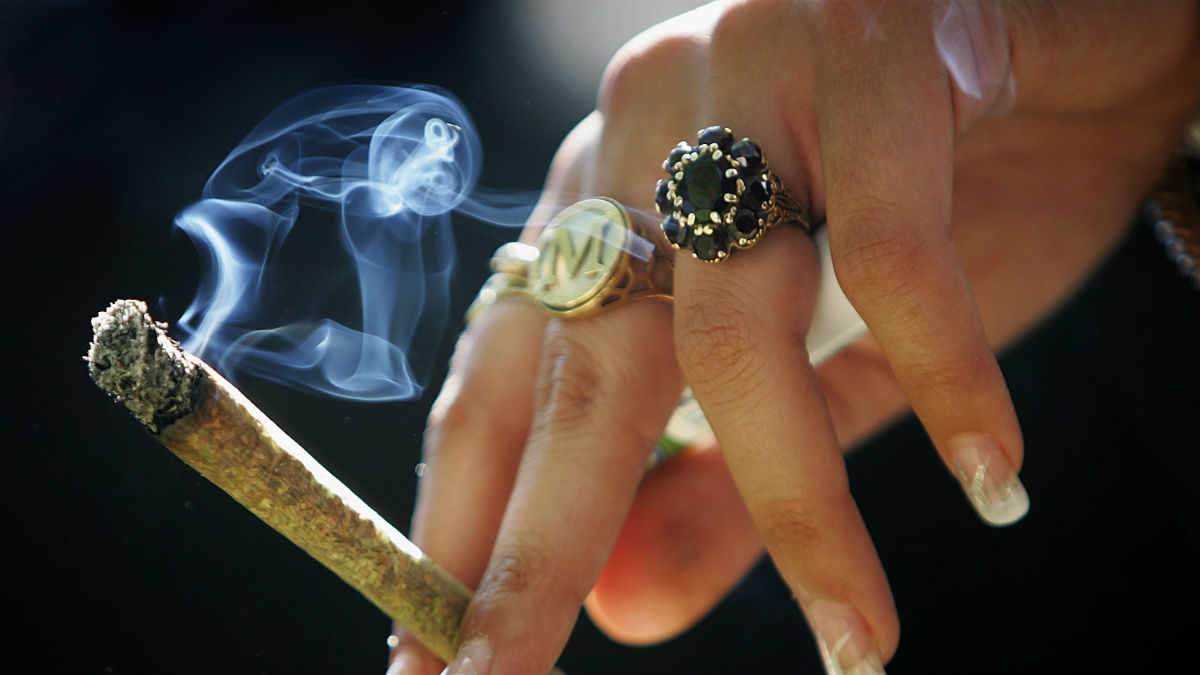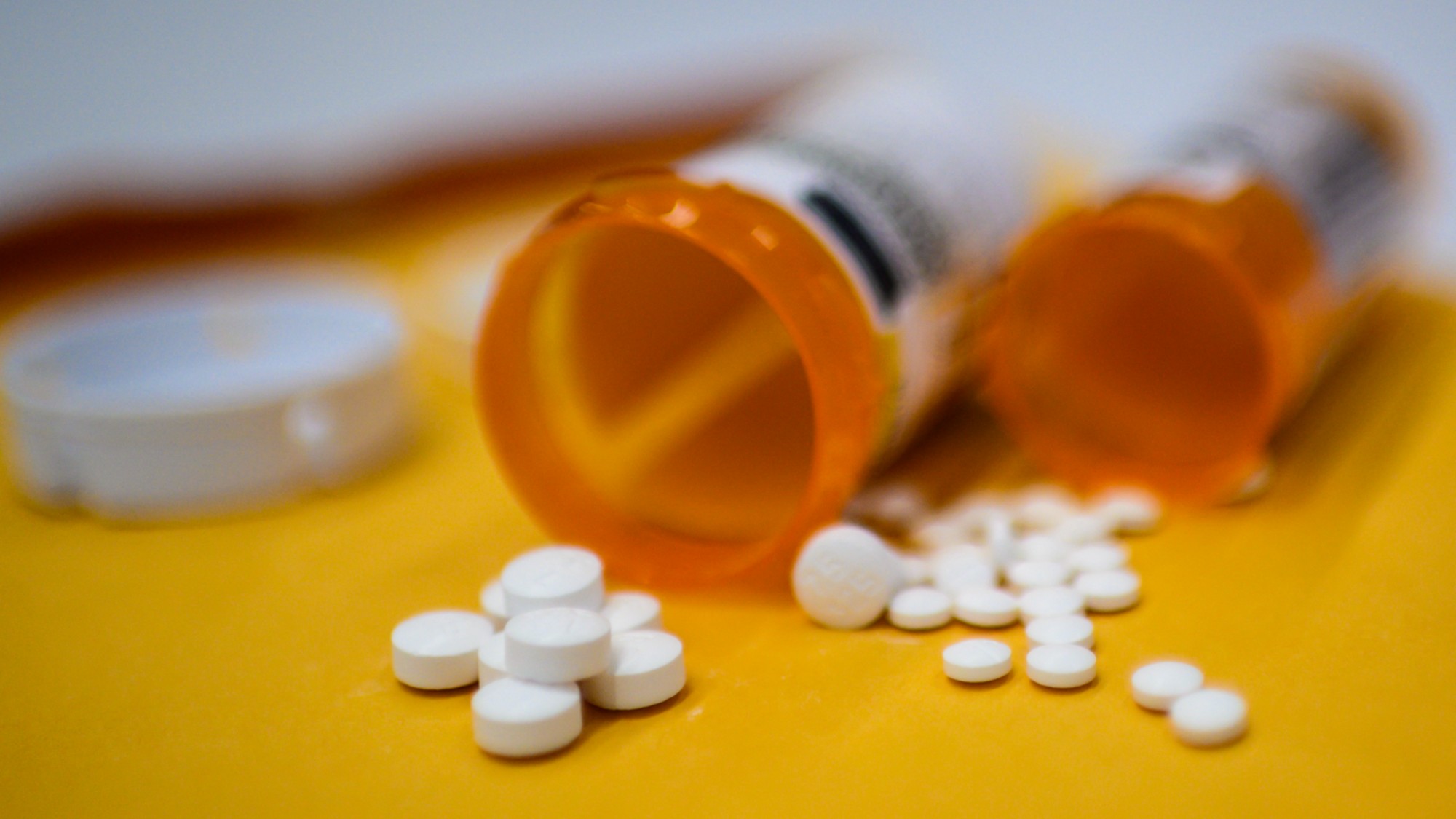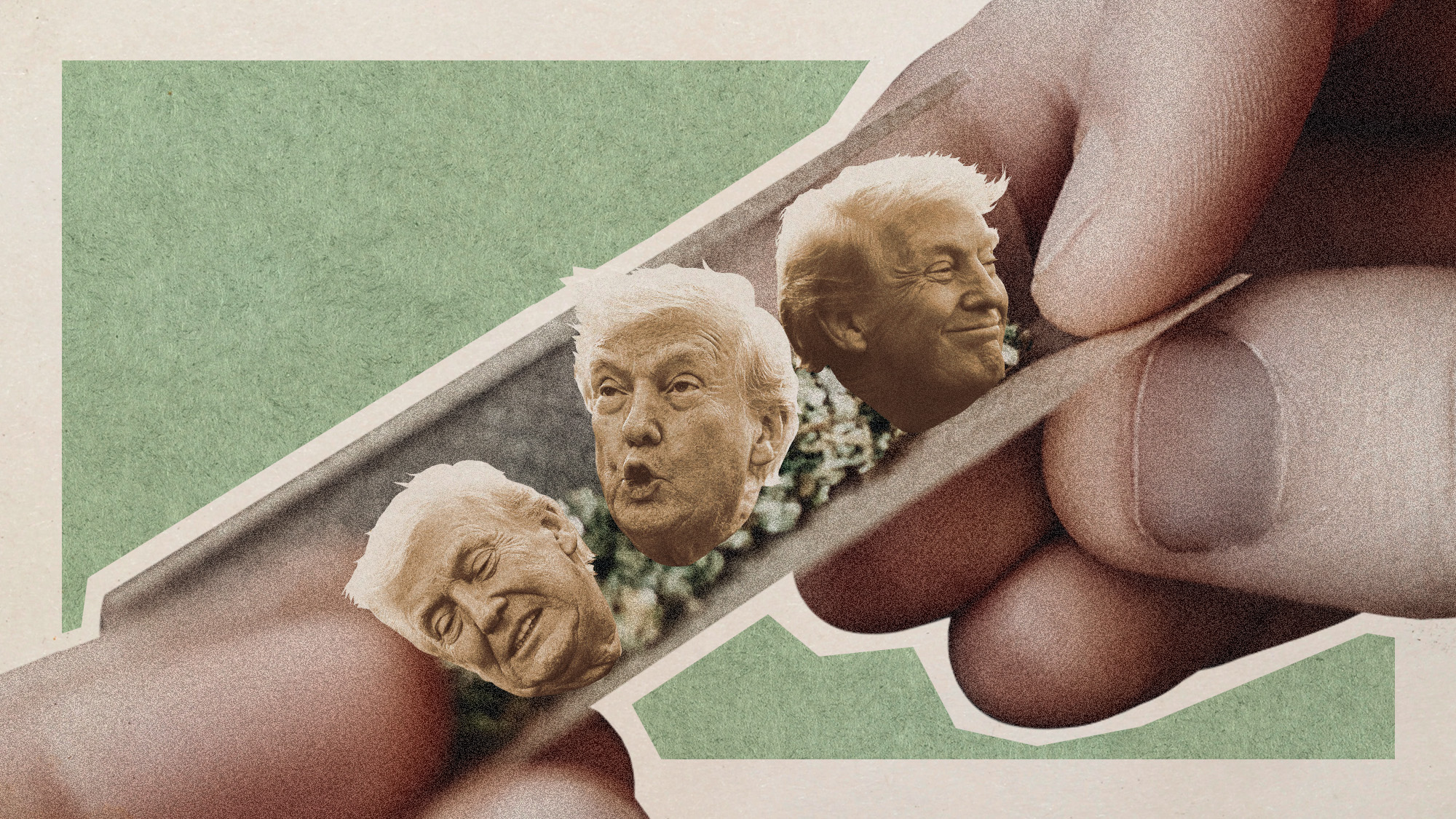Should the UK decriminalise some drugs?
Sadiq Khan planning to end prosecution of young people caught with cannabis

A free daily email with the biggest news stories of the day – and the best features from TheWeek.com
You are now subscribed
Your newsletter sign-up was successful
Sadiq Khan is planning to effectively decriminalise possession of cannabis in London in an effort to end the prosecution of young people for minor drug offences, it has emerged.
According to The Telegraph, “under-25s found with drugs in some boroughs will be offered speeding course-style classes or counselling instead of arrest” as part of a scheme that the London mayor hopes to launch later this year.
In three boroughs, Lewisham, Bexley and Greenwich, police officers will be “told not to arrest young people caught with cannabis, ketamine or speed”. Instead of being detained and taken to a police station, young people would instead be returned to their homes.
The Week
Escape your echo chamber. Get the facts behind the news, plus analysis from multiple perspectives.

Sign up for The Week's Free Newsletters
From our morning news briefing to a weekly Good News Newsletter, get the best of The Week delivered directly to your inbox.
From our morning news briefing to a weekly Good News Newsletter, get the best of The Week delivered directly to your inbox.
The plan could put Khan’s on a collision course with Labour leader Keir Starmer who responded to the news by telling reporters that he was “very clear” that he was “not in favour” of decriminalisation as a policy.
Asked whether he would support Khan’s plan, he added: “I haven’t seen the details of the proposals that you’ve reported on. As I understand it they are early measures, they are some sort of pilot.
“Obviously we’ll look at those, but I’m very clear that we’re not in favour of changing the drugs laws.”
In October 2020, police chiefs agreed to exempt users from prosecution for repeated drug offences as part of what The Times called “the creeping decriminalisation of drug use”. The news triggered debate over the legalisation of Class B drugs across the board.
A free daily email with the biggest news stories of the day – and the best features from TheWeek.com
Pro: the war on drugs creates addicts
Cannabis has been classified as a Class B drug in the UK since 2008 and carries a prison sentence of up to five years for possession.
Release, the drugs charity, says arresting users “creates more harm for individuals, their families and society”. It adds that if users are not “caught up in the criminal justice system” they have a better chance of escaping addiction and argues that evidence from other countries supports this view.
Con: legalising drugs would create addicts
According to a 2018 report from the thinktank the Centre for Social Justice (CSJ), legalising cannabis could prompt an extra one million people to use the drug, with 100,000 becoming addicted.
Andy Cook, Chief Executive of the CSJ, said: “Advocates of cannabis legalisation or decriminalisation should think through the implications of their views.
“They would open the floodgates to hundreds of thousands of new users, many of whom will be young and vulnerable, and so more prone to damaging physical and mental damage.”
This view is shared by Kevin Sabet, a leading US academic and opponent of drug liberalisation, who told The Guardian: “Legal regulation has been a disaster for drugs like alcohol and tobacco. Both of those drugs are now sold by highly commercialised industries who thrive off addiction for profit.”
Pro: if you can’t beat them, regulate them
Writing in The Guardian, chief executive officer of Transform Drug Policy Foundation, James Nicholls, argues that “legalisation of cannabis in the UK would help protect its users from harm” by allowing for the control of the drugs potency.
Sir William Patey, the former UK ambassador to Afghanistan, ruffled feathers when he came out in favour of legalising the trade in opium poppies, from which heroin is derived.
In a separate article in The Guardian, Patey said it was impossible to stop Afghan farmers from growing and exporting opium illegally, concluding that “if we cannot deal effectively with supply” the only alternative is to “limit the demand for illicit drugs by making a licit supply of them available from a legally regulated market”.
The endorsement of the Cancard by multiple police organisations will likely bolster support for the effective legalisation and subsequent regulation of cannabis.
The Cannabis Exchange says that those eligible for a card “will be able to identify themselves to police as verified medicinal cannabis patients and will have access to an open-source legal defence provided by Cancard should they require it”.
The founder of the Cancard movement, Carly Barton, said: “Cancard should give patients peace of mind and police confidence in using their discretion before any stress has been caused to vulnerable people.”
Con: sending out the ‘wrong’ message
Prohibitionists argue that legalising drugs would suggest to the public that they are safe to take, flying in the face of evidence showing that even cannabis can damage people’s mental and physical health.
Alex Berenson, author of “Tell Your Children: The Truth About Marijuana, Mental Illness, and Violence”, writes that “scientists have found a link between cannabis use and severe mental illness”, with “people who use cannabis as teenagers [having a] much higher risk of developing schizophrenia, the most devastating mental illness”.
In May 2018, the Home Office said: “The legalisation of cannabis would send the wrong message to the vast majority of people who do not take drugs, especially young and vulnerable people, with the potential grave risk of increased misuse of drugs.”
Pro: regulated drugs are safer
One of the strongest arguments for legalisation and regulation is that it ensures the quality of drugs being consumed. Drugs sold by dealers are often cut with harmful substances, increasing the risk of suffering adverse effects.
Lord Falconer, who served as Tony Blair’s justice secretary and was Jeremy Corbyn’s justice spokesman until June 2016, said the ban on drugs such as heroin and cocaine was responsible for killing “tens of thousands”, he added that it is “better to sell mild and medically safe versions of drugs that give a high than ones sold by gangsters”.
Deaths from heroin more than doubled from 2012 to 2015 while in 2016, 63 people died from ecstasy-related incidents in England and Wales – “deaths that could have been prevented if they’d known better what they were taking” says the Adam Smith Institute’s Matt Kilcoyne on Conservative Home.
Pro: big savings for the taxpayer
Legalising cannabis could raise £1.5bn in tax according to the Lib Dems, while Health Poverty Action has previously estimated that legal recreational use of the drug could earn the Treasury up to £3.5bn a year in tax revenues.
“Prohibition has failed,” said Natasha Horsfield, the group’s advocacy officer. “From our perspective, it’s about regulating the market to improve public health outcomes and create a safer environment. But we can see the potential benefits from a taxation perspective if we were to regulate it.”
A report from the Institute for Social and Economic Research suggests that legalisation would save up to £300m in policing, criminal justice and drug treatment services in England and Wales. Health Poverty Action says it would free up the police and judicial systems to address more serious or violent crime and reduce the overall prison burden.
What countries have legalised drugs?
Portugal has led the way in decriminalising the possession of small quantities of any drug since 2001, in a radical experiment that has become the test case for many countries looking to reform their drug laws.
And In December 2013, Uruguay became the first nation to make it legal to grow, consume and sell cannabis.
Thirty-three US states and the District of Columbia allow marijuana for medical purposes, while a further 11 states have legalised the drug for recreational use. Canada has also made cannabis use legal, becoming the first G7 country to fully legalise cannabis in 2018.
What happens when drugs are decriminalised?
Multiple studies of what happened in Portugal show the hugely positive impact decriminalisation has had over the past 15 or so years.
The country has an extremely low rate of overdose deaths and has reduced the number of HIV-positive people addicted to drugs. It has also saved millions of euros in prison expenses while the level of drug use has not gone up.
The legalisation of cannabis in some US states has not led to a rise in adolescent use, a US study found. It revealed that while cannabis use was generally higher in the states that had passed medical marijuana legislation before 2014, the passage of such laws did not affect the rate of marijuana use in those states.
In the UK, the use of cannabis-based medicines has been approved by the government, but prescriptions of the drug are still fairly rare.
-
 6 of the world’s most accessible destinations
6 of the world’s most accessible destinationsThe Week Recommends Experience all of Berlin, Singapore and Sydney
-
 How the FCC’s ‘equal time’ rule works
How the FCC’s ‘equal time’ rule worksIn the Spotlight The law is at the heart of the Colbert-CBS conflict
-
 What is the endgame in the DHS shutdown?
What is the endgame in the DHS shutdown?Today’s Big Question Democrats want to rein in ICE’s immigration crackdown
-
 How corrupt is the UK?
How corrupt is the UK?The Explainer Decline in standards ‘risks becoming a defining feature of our political culture’ as Britain falls to lowest ever score on global index
-
 ‘One day fentanyl will come back — and there will be little anyone can do’
‘One day fentanyl will come back — and there will be little anyone can do’Instant Opinion Opinion, comment and editorials of the day
-
 The high street: Britain’s next political battleground?
The high street: Britain’s next political battleground?In the Spotlight Mass closure of shops and influx of organised crime are fuelling voter anger, and offer an opening for Reform UK
-
 Trump says US ‘in charge’ of Venezuela after Maduro grab
Trump says US ‘in charge’ of Venezuela after Maduro grabSpeed Read The American president claims the US will ‘run’ Venezuela for an unspecified amount of time, contradicting a statement from Secretary of State Marco Rubio
-
 Why is Trump’s alleged strike on Venezuela shrouded in so much secrecy?
Why is Trump’s alleged strike on Venezuela shrouded in so much secrecy?TODAY'S BIG QUESTION Trump’s comments have raised more questions than answers about what his administration is doing in the Southern Hemisphere
-
 Vance’s ‘next move will reveal whether the conservative movement can move past Trump’
Vance’s ‘next move will reveal whether the conservative movement can move past Trump’Instant Opinion Opinion, comment and editorials of the day
-
 Why, really, is Trump going after Venezuela?
Why, really, is Trump going after Venezuela?Talking Points It might be oil, rare minerals or Putin
-
 Why does Trump want to reclassify marijuana?
Why does Trump want to reclassify marijuana?Today's Big Question Nearly two-thirds of Americans want legalization